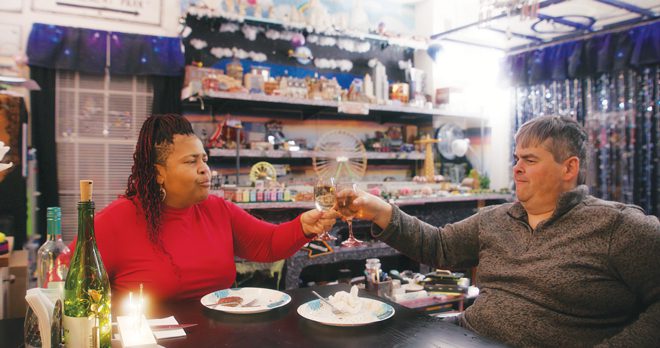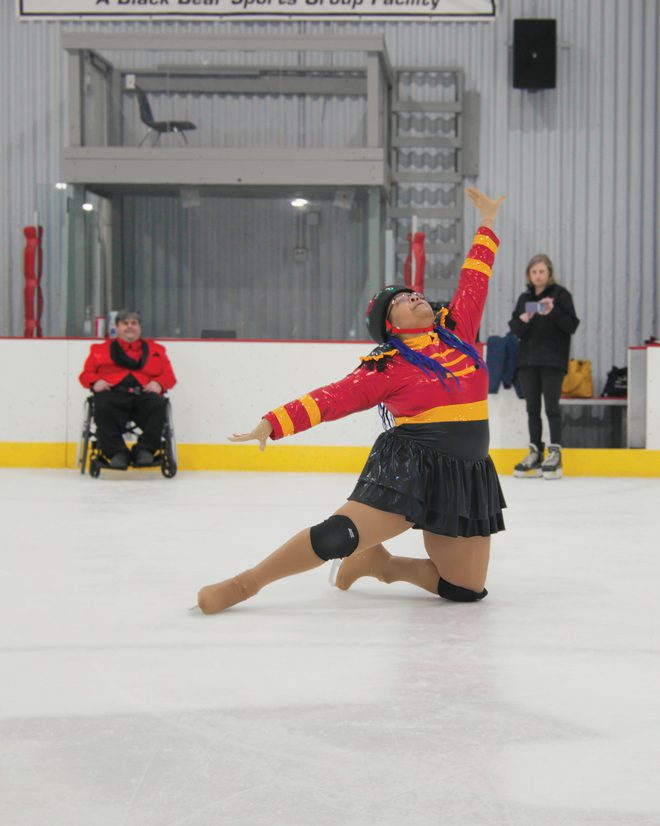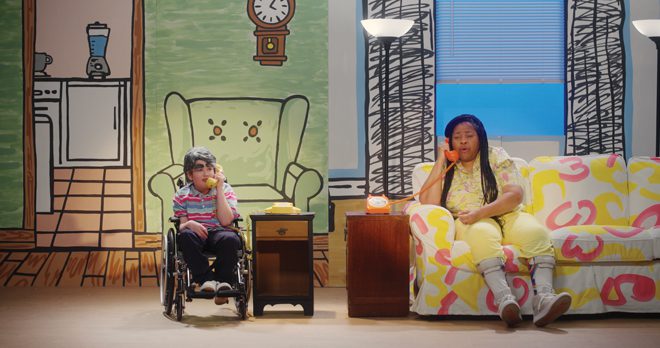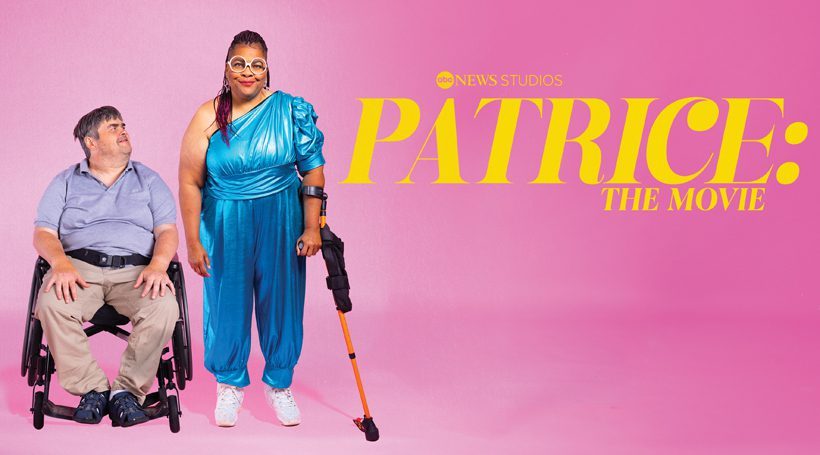Patrice Jetter is a force of nature. A beloved crossing guard, champion ice skater and artist, Jetter is, as she likes to say, “a totally cool person with a disability who can do most anything.”
Garry Wickham, her longtime partner on and off the ice, agrees wholeheartedly. “She is hands down your most famous crossing guard in Hamilton Township,” he says. “She might as well be Madonna.”
But there’s one thing Jetter can’t do, even though she and Wickham want it more than anything: It’s the whole happily-ever-after thing. Marriage – or even living together – would put the 50-somethings’ essential disability benefits at risk, forcing them to choose between love and survival.

“We would love to get married and just be able to live together. But we’ve also got to survive.”
Their story is the subject of a new documentary/rom-com “Patrice: The Movie,” which takes an intimate look at their love, lives and the bureaucratic red tape that keeps them apart.
 The movie, now on Hulu, showcases Jetter’s vibrant life – her artwork, her model train set inspired by the old Palisades Amusement Park and her pride in her work guiding Hamilton elementary-school kids safely to and from school every day. “Patrice” frames their relationship as more than a personal love story. It’s a modern-day quest for marriage equality, showing how outdated Social Security and Medicaid regulations prevent people with disabilities from marrying without serious financial risk.
The movie, now on Hulu, showcases Jetter’s vibrant life – her artwork, her model train set inspired by the old Palisades Amusement Park and her pride in her work guiding Hamilton elementary-school kids safely to and from school every day. “Patrice” frames their relationship as more than a personal love story. It’s a modern-day quest for marriage equality, showing how outdated Social Security and Medicaid regulations prevent people with disabilities from marrying without serious financial risk.
“It’s not that we don’t want what everyone else wants,” Wickham says. “We just do things a little differently.”
For now, that means living apart, in separate apartments 20 minutes from each other. Their relationship is full of love and laughter, but in practical terms, it’s a delicate balancing act – one they’ve had to perfect in order to stay financially independent.
“We would love to get married and just be able to live together,” Jetter says. “But we’ve also got to survive.”
“Patrice’s story is one of many,” says the documentary’s Philadelphia-based director Ted Passon. “But she’s an extraordinary person who brings it to life in a way only she could.”
The movie has a whimsical, storybook quality reminiscent of “Pee-wee’s Playhouse.” Before filming began, Jetter had already been working on a graphic novel about her life. Her illustrations became the basis for the film’s set design, helping to shape flashback scenes that delve into her childhood struggles, including the abuse she faced in institutional care. With these imaginative reenactments, she plays herself at various ages while children portray everyone else in her life.
While Wickham openly discusses his experiences living with cerebral palsy, Jetter’s specific disability isn’t disclosed in the film. Instead, her background unfolds through flashbacks of cruelty she faced in school, her fraught relationship with her mother and issues she faced finding her way through life.
“It was hard having to revisit stuff that I had put behind me a long time ago,” Jetter says. “But I also knew, too, that a lot of folks don’t know what goes on in those institutions, because a lot of times you only see what happens in the visitors’ lounge. And once your visitors leave and those doors lock, they don’t know what goes on behind the locked doors.”
Passon, known for his award-winning docu-series “Philly D.A.,” says he wanted the team’s process to honor Jetter’s vision at every step.
“We had a diverse team of people with disabilities who weighed in on everything, from the writing to the filming,” says Passon. “If we got this story right, it’s because we had incredible people guiding us.”

“Patrice: The Movie” has its rom-com moments, but it also shows a partnership born out of resilience. For more than 35 years, Jetter and Wickham have been inseparable – first as co-workers, then best friends, and for the last 7 years, true partners. Their bond extends to competing as a synchronized skating pair in Special Olympics couples competitions.
In one of the film’s most moving scenes, the couple lead a rally of disabled couples advocating for marriage equality in Washington D.C., marching in wedding dresses and suits as they call for the right to share a home without losing essential benefits. Jetter stands at the front with a bullhorn, leading a vow that captures the core of what the other disabled couples seek: “We would like to get married and be able to go to the doctor. We would like to get married and be able to buy groceries and medicine. We would like to get married and be able to pay rent and bills and not end up living in a cardboard box.”
The documentary’s debut sparked a wave of support, earning the Audience Award for Best Documentary at the Camden (in Maine, not South Jersey) International Film Festival and catching the attention of the Social Security Administration, which released a rare public acknowledgment of the film’s impact and the need for policy change. Patrice: The Movie has since screened at festivals in California and London, and Jetter and Wickham have shared their story on “The View” and “Good Morning America.”
After a Toronto screening, the head of an events company approached the couple, offering to host their wedding for free if the day ever comes when marriage is possible without financial penalty.
But for now, daily life looks much the same for the couple. Jetter is back at her crossing-guard post each morning, volunteering as an art teacher on Mondays, and the couple is back on the ice, practicing for their next Special Olympics show. For Jetter, the film’s success is a reminder that change could be around the corner – but she hopes the impact will reach even further.
“I would like to see more people with disabilities on TV and in media, because we’re just like anybody else,” she says. “We can do drama, we can be comedians. We can do anything – it just means getting around a little differently. And once people see the person, not just the disability, they’ll see we’re just like anybody else.













